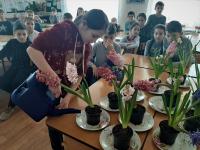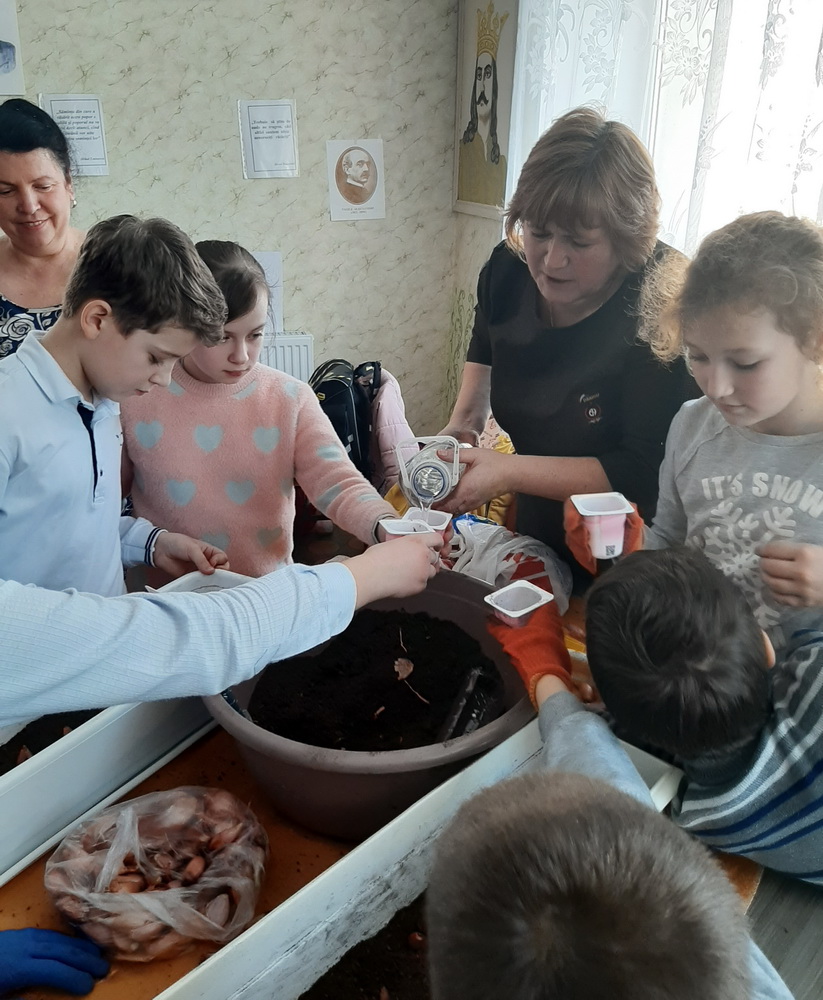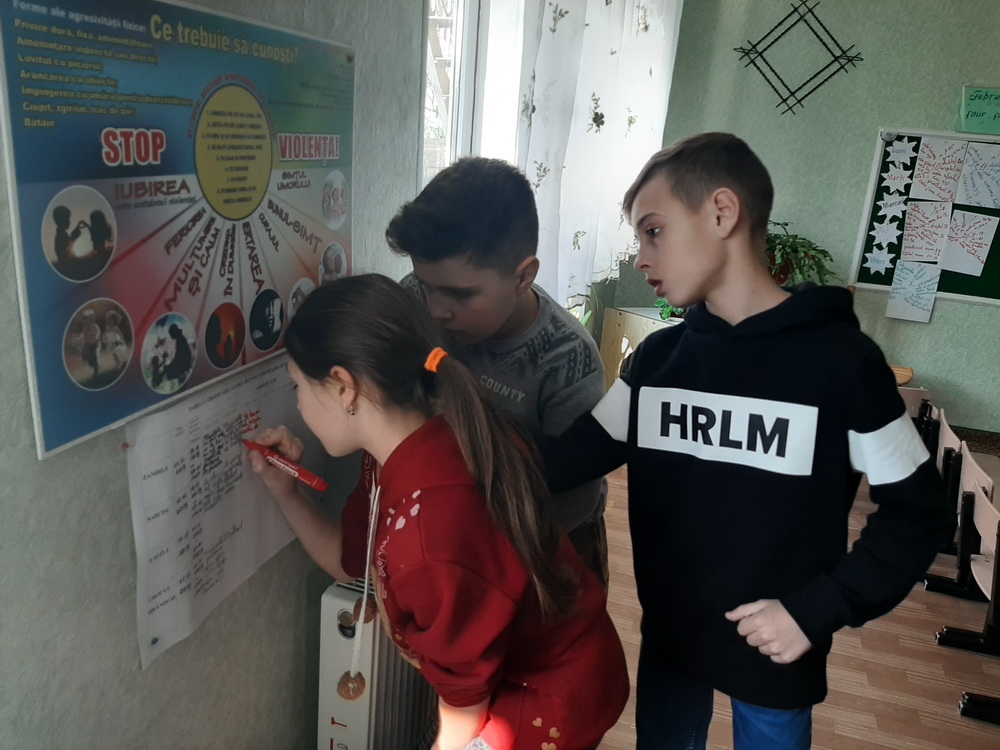Flowers for Martisor from pupils of Moldova

Pupils of the "Grigore Vieru" Primary School in the city of Stefan-Voda, Republic of Moldova, together with their teacher, Mrs. Galina Iuraș, decided to hurry the arrival of spring in their school by planting flowers - the spring messengers.

In December, 2020, just in the beginning of winter, pupils, guided by teachers, planted flower bulbs of hyacinths, daffodils, tulips and crocuses. Many of the flowers were also planted in the cups from yogurt, thus realizing the pupils' idea of waste reuse, being more environmentally responsible.
First days of the planted flowers were spent in a dark room, to accommodate them to the new conditions. Within 2 weeks, flower potse were placed in day-light and were distributed among the classrooms.
Mrs. Galina Iuras, as the coordinator of the project “EU4Youth: “School Garden” for Agricultural Entrepreneurship” at school, says “The main difficulties within this activity was our rush to move the flowers from the dark to daylight. It shortened their rest time and they started to grow faster than we thought”.
Within days after the bulbs were planted, the shoots started to sprout. Pupils became much more excited and more interested in this activity once they saw the first yellow-green leaves of the flowers sprout.
“As long as this activity has been carried out, students have learned how to properly plant a flower, how to care for it, how to maintain it, which are the key elements a plant needs in order to grow” - Mrs. Ludmila Turcan, teacher of the 1A class told us.

“During the growth period, the students noted in a table the changes that they observe in the growth process. “ shares her thoughts teacher Svetlana Pusca.
Almost 150 pupils along with 7 teachers have been involved in this activity.
“Students are very curious. For the first time we develop such activities. In the morning when the students enter the classroom, they quickly run to the flowers to see what changes have occurred since the day before. In addition to the physical changes, the smell of hyacinths is very remarkable. " - tells us Liuba Chetrari, teacher of the 4th B class.
The first flowers began to unfold in early February, anticipating the calendar spring. The fastest were the crocuses. The other flowers did not want to be left behind and enjoyed the students with flowers of hyacinths, tulips and daffodils.
In the last week of February the flowers started to be sold to enjoy the inhabitants of Stefan-Voda on the occasion of the coming spring and Mărțișor, a national holiday, at the beginning of spring, on March 1st in Moldova and in all the territories inhabited by Romanians. The word Mărțișor is the diminutive of Martie, old popular name for March, and thus literally means "Little March".

“I wanted to share with my mother a fresh flower that had been grown by me” says proudly Gloria Arnaut, one of the students that has been involved in the flower growing activity.
The money obtained from the sales of flowers will be used in the school activities. “Pupils will know that the goods bought are from the money they had worked for” thinks Cornitel Aurelia, teacher at the Stefan-Voda Primary School.
Next, the students are planting onions and other bulbs to have full of green vegetables and vitamins on the spring plates. Also, with the coming of spring, students will move to greenhouse and in open field activities, planting summer flowers and vegetables for the school canteen. They have already prepared seeds of petunia, snap-dragon and dahllias, as well as greens such as lettuce.
Growing the flowers for Mărțișor brighten the winter for pupils and foster their motivation and interest to agriscience. In addition to developing practical and theoretical skills on flower growth, children also develop their entrepreneurial skills, being directly involved in the flower marketing activity, under the supervision of their teacher.
Author Elena Culighin (National Environmental Centre (Moldova)
More about school gardens in Moldova
This publication has been produced with the support of the European Union and the Green Cross International. Responsibility for the content of this publication lies with the public organization “Green Cross Belarus”, and it can in no way be taken to reflect the views of the European Union and Green Cross International.
